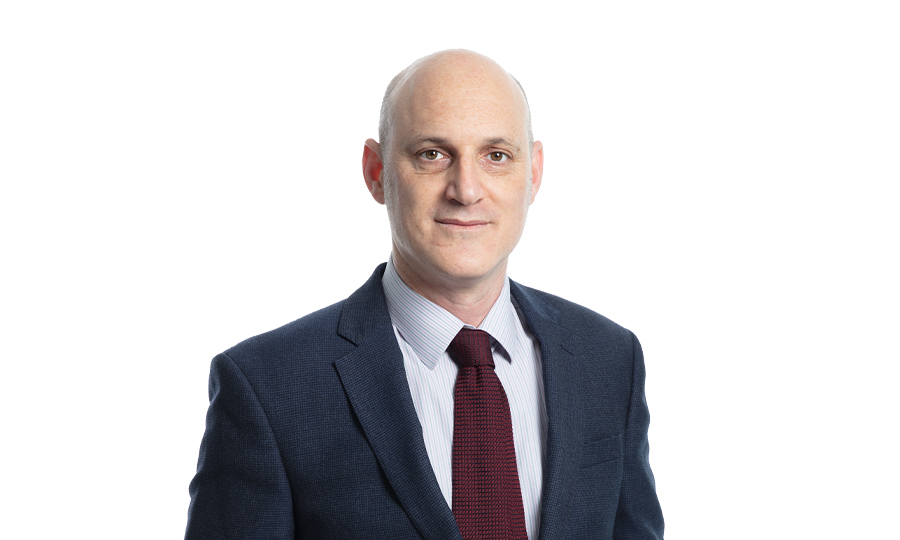The SFO on trial; can it change its ways?
The Serious Fraud Office (SFO) has published its Annual Report and Accounts, 2021-2022, alongside the much-anticipated findings of Brian Altman QC’s and Sir David Calvert-Smith’s reviews into the collapse of the R v Woods and Marshall trial and the SFO’s handling of the Unaoil investigation.
The reviews cast a dark shadow over the Annual Report’s predictably sunny spin on the SFO’s achievements over the past year – as well the SFO’s success in securing seven guilty verdicts against Glencore Energy (UK) Ltd which were obtained on the same day. By coincidence, the day also saw the Court of Appeal overturn a third Unaoil conviction.
Nick Vamos, Joseph Duggin and Dan Hyde comment on the significance of the reviews’ findings for the SFO in its self-titled “year of the trial”.
Annual Report and Accounts, 2021-2022
The SFO rightly boasts of a number of significant achievements in 2021-22. Most notably, it secured the largest conviction against a single entity under the Bribery Act 2010 when Petrofac Ltd pleaded guilty to seven counts of failing to prevent bribery by its employees and agents (contrary to section 7 of the Bribery Act 2010), recovering a total of £77m in confiscation, fines and costs.
It also obtained £30m in financial penalties from GPT’s guilty plea to corruption and three deferred prosecution agreements including the US$177m global settlement with Amec Foster Wheeler Energy Ltd. It also records a 100% recovery rate in financial orders, totalling £45m, and meaning the SFO contributed a return of 3.9 times its budget to HM Treasury.
Regrettably, 2021-22 will be remembered for two incidents that demonstrate the deep cultural and structural issues that inhibit the SFO from maximising its potential to lead the UK’s fight against fraud and corruption.
The reviews
Sir David Calvert-Smith’s Independent Review into the SFO’s handling of the Unaoil case – R v Akle & Anor
The Calvert-Smith Review followed the judgment of the Court of Appeal, Criminal Division, (CACD) in December 2021 which overturned the conviction of Ziad Akle on the basis that the SFO made significant disclosure failings, particularly in relation to contact between senior individuals at the SFO, including its Director, Lisa Osofsky, and an alleged ‘fixer’, David Tinsley – the CACD finding that it “was wholly inappropriate for the SFO to have any dealings with Tinsley in relation to the pleas of [the defendants]”.
Sir David Calvert-Smith, a former Director of Public Prosecutions and High Court judge, identified a number of “unavoidable events” that led to the CACD judgment, as well as events which should not be repeated “with the benefit of hindsight”. It is, however, the completely avoidable failings on the part of the SFO and particular individuals that are of most interest, as these form the basis for the recommendations. These included criticism of:
– The Director of the SFO, Lisa Osofsky, directly for failing to consult more broadly on the “wisdom of engaging with” Tinsley.
– The senior management team for excluding the relevant head of division from discussions about handling Tinsley and the case team more generally being “left in the dark”.
– The SFO’s chief investigator for failing to inform independent counsel of the role played by Tinsley.
– Poor record keeping throughout the organisation (including by the senior team, Ms Osofsky, her private office and the chief investigator) which was incompatible with the statutory disclosure requirements.
Brian Altman QC’s report, the collapse of R v Woods & Marshall on 26 April 2021
The “Altman Report” followed another instance of disclosure failings, this time identified by the SFO a few weeks into the trial of two former senior managers of Serco Ltd, Messrs Woods and Marshall. Having detected its own failings, the trial judge refused the SFO’s application to adjourn the trial to remedy the issue forcing the SFO to offer no evidence and the trial to collapse at the end of April 2021.
The “catalyst” for the collapse was the SFO’s failure to disclose a specific document which was relevant to an essential part of the defence case. However, it was not the only disclosable document withheld from the defence in a disclosure process that itself was heavily flawed.
The Altman Report concludes that there were a number of factors leading to the collapse of the case, including the:
– Inadequate manual descriptions given to documents meaning material was unidentifiable as disclosable.
– “[E]mbarrassment of internal disclosure guidance documents” that were questionable in terms of their real assistance to reviewers.
– Disclosure officer’s “inexperience [which] should have disqualified him from appointment as Disclosure Officer on such a large and complex case… His perception of being marginalised and undermined is concerning, and, if accurate, suggests he lacked authority”.
– Failure to undertake any quality assurance review post-2019.
Further, the Altman Report identifies additional issues which may not have caused or contributed to the collapse of the case but nevertheless are “systemic problems of real concern”. The themes are familiar: low morale on the team; concerns with staffing and resourcing; large turnover of staff; limited number of reviewers and time pressures on specific reviewers; inadequate technological capabilities to cope with Covid-19 and remote working; and an “ineffective” and “chaotic” performance monitoring scheme.
Recommendations
There is a great deal of overlap between the recommendations in the two reports. In particular, both make detailed recommendations about disclosure strategy, management, methodology and assurance processes.
Both, inevitably, recommend greater resourcing and enhanced assessment of cases: Sir David Calvert-Smith specifically recommending regular reviews and assessment of cases by heads of division and case controllers with general counsel and COO oversight; Brian Altman QC recommending project management training for case controllers and disclosure officers.
Many of Sir David Calvert-Smith’s recommendations merely remind the SFO to follow the standard investigation and prosecution practices, such as that information from a defendant or suspect “must be fully recorded and shared with the case team”. This somewhat demonstrates the need for the SFO to build on its new and improved training regime, specifically with advanced training for disclosure officers as Altman QC recommends.
Basic managerial recommendations are also made, including the need for a “case list with sufficient detail” to enable the Attorney General’s Office to “superintend” sensitive and high-risk cases.
Culturally, the Calvert-Smith Review focuses on the need to improve relationships between investigators and prosecutors under the Roskill method and the need for a clear route for case staff to raise concerns – recommendations which the SFO and the Attorney General have already accepted.
Technology investment is also recommended by Altman QC to improve the timeliness, efficiency and accuracy of processing evidence for review, designing case management systems to focus on disclosure, and ensuring remote working is fit for purpose.
Altman QC is right to point out – quite bluntly – “remuneration for disclosure reviewers is not reasonable remuneration for the work done, or expected to be done, and should be increased to bring it in line with other equivalent organisations”.
No easy fix
“Disclosure failings” are the chorus on the SFO’s broken record player. Disclosure may be straightforward enough, in theory, but all practitioners would accept that it requires talented, experienced and committed people to implement and execute good processes. The Altman Report’s recommendations regarding disclosure are welcome for their specificity.
Processes are relatively easy to fix. The SFO has already undertaken to review its new disclosure guidance and issue any new policies or guidance by the end of the year. The SFO had publicly committed to its intention to invest in artificial intelligence to assist with disclosure.
Fixing culture and resourcing are, however, not so easy. The apparent distrust between investigators and prosecutors, and failure to share information within case teams, is worrying. Ms Osofsky has demonstrated poor judgment in her handling of the Unaoil case and it is apparent that the Director has as many personal, as well as institutional, lessons to learn. It is questionable if real improvements can be made on the remainder of her watch.
The SFO has committed to review counsel fees for disclosure reviewers but, stating the obvious, notes “that increased counsel fees will reduce the funding available for other operational priorities”. Repeated disclosure failings undermine the credibility of the SFO and the UK’s commitment to combatting the most prevalent crime – fraud. Disclosure must therefore become the “operational priority”.
Funding is at the core of the SFO’s issues; from its ability to attract and retain talent and properly resource cases, to its adoption of technology. It is no secret that SFO pay and counsel rates fall well short of market rates in the white collar crime legal sector. The £4.4m allotted for technology investment is a drop in the pond.
Frustratingly, there is an obvious source of funding – the SFO itself, which is a constant net contributor to the Treasury. However, the SFO is only entitled to retain £0.9m of fines from its cases – the remainder goes into a central fund. As we have recommended to the Justice Committee, such proceeds should be ringfenced for either the SFO or the criminal justice system. Justice, though, is not a fashionable subject in Westminster – SFO funding is not an issue in the Conservative Party leadership race. We would not hold our breath that funding the SFO will be the victor’s priority.




